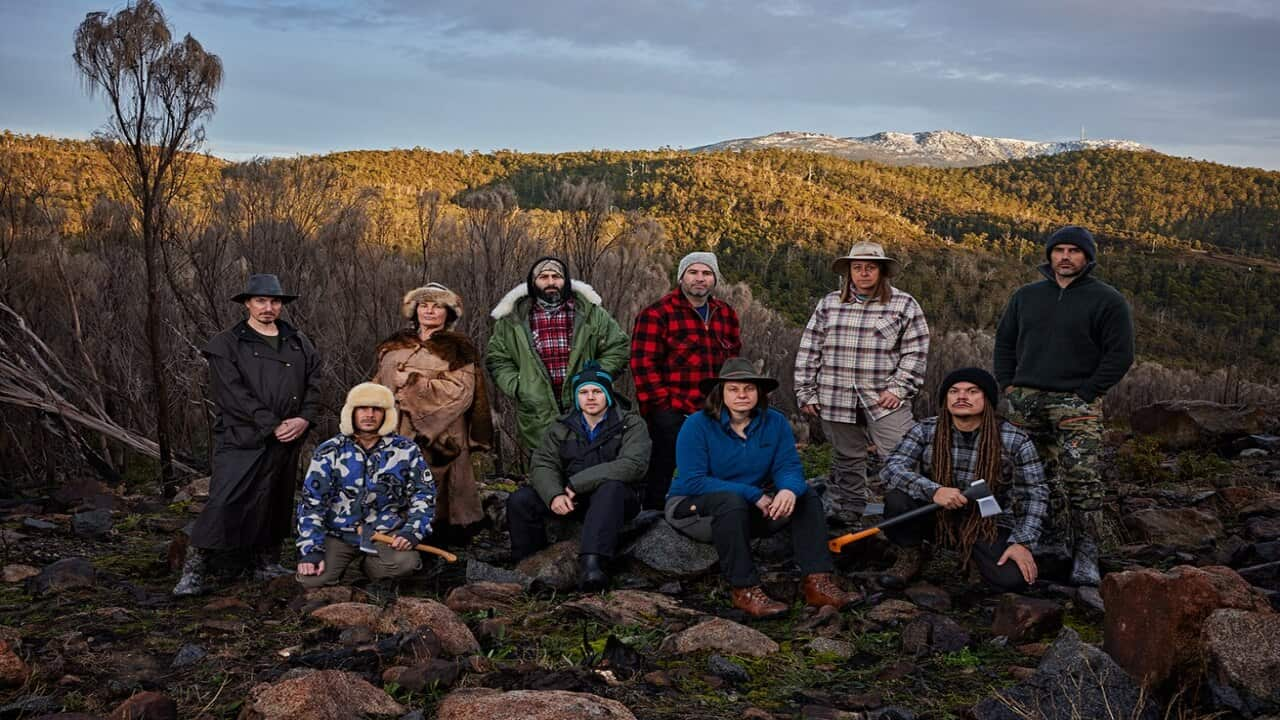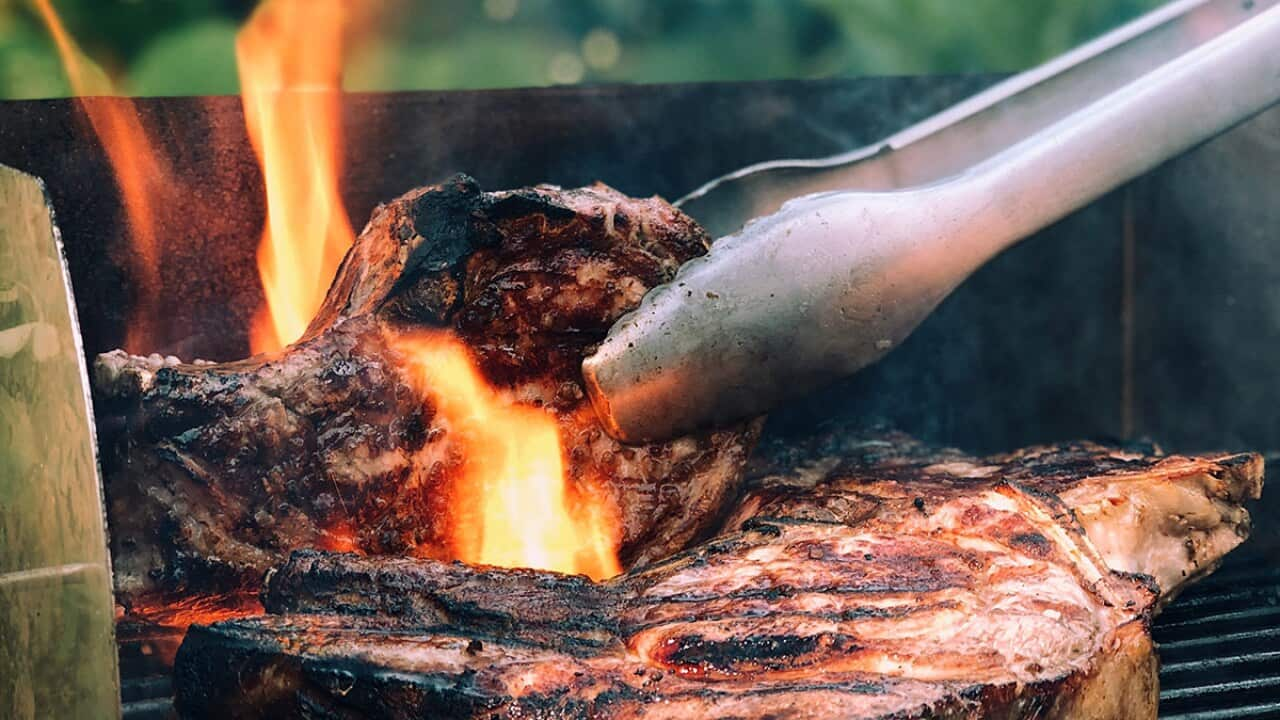----- Alone Australia premieres with a double episode on Wednesday 29 March at 7.30pm, exclusively on SBS and . Single episodes continue weekly until 24 May, when a double-episode finale will air. will release teacher resources to accompany the series. Alone seasons 1–8 are now streaming . -----
My mum reckons that when she first put me on the ground as a baby, the first thing I did was crawl around to find myself a stick and dig roots out of the ground to eat.
It sounds about right because the earliest memories I have as a child are of catching and eating insects.
As I got a little bit older, I even started to make campfires to cook lizards and snails. By the time I was 17 years old, I was going out for two or three weeks at a time alone and living off the land. I’d eat fresh fish from the river and hunt introduced animals like goats or deer with my bow and arrow.
I am now 47 years old and nothing much has changed. When I'm not running my survival and foraging courses, I live alone in the wilderness full-time on the Central Coast, NSW. I often only eat what I forage, hunt or catch.
There are many ways to die in the wilderness if you’re out here alone. Starvation and dehydration are just two of them.
For six years, I lived in a grass hut in the bush. But last year, my camp got a bit washed out by the heavy rain. So I moved further uphill and am staying in an old caravan in the bush. I come down to town from time to time to visit my family or do my washing (when I don’t do it under a waterfall). But for most of the year, I am living in the wild – alone.
I like to eat introduced (non-native) flora and fauna as much as possible. I lived on cane toads’ legs for a week in Queensland once. They are quite nutritious, as they are high in protein. But to eat them, you need to process them safely first to make sure they are free of poison. They were very tasty. I’ve also eaten snakes many times, as well as wild deer and goats. Rabbits are another really great option.
The realities of going it alone in the bush
The truth is that living in the bush can be tough. There are many ways to die in the wilderness if you’re out here alone. Starvation and dehydration are just two of them. You can also absolutely die if you don’t know how to treat infection, diarrhoea or where to find water.
There’s only so much information you can get about surviving in the wild from books. To really be bush-smart, you've got to spend a lot of time surviving off the land in the company of people who are very experienced.
There are so many different plants that you can draw water out of and spots in the bush where you can dig for water. It's not too difficult to find macronutrients in the wild once you know what you're doing and receive some training. Plants that are chock a block full of starchy carbs and a lot of incredibly nutrient-dense foods like grubs and seafood.
But unless you know what you’re doing and exactly what you’re about to eat, then eating from your surroundings in the bush can be dangerous. If you're not 100 per cent certain of what a certain food is, there’s one rule to follow: when in doubt, go without. There's also a sustainability factor that you need to consider. When you take food from the land, you need to do it with respect for the land’s Traditional Owners.
Cultural ties to the land
Some people say I live primitively. But I don't consider my lifestyle to be primitive. I see it as living off the land.
Sourcing food that’s wrapped in plastic from a shop has just never felt right to me, especially when I know I can go and get food sustainably and safely from the bush. My way of living in the Australian wilderness just makes sense to me. It’s a natural thing that’s developed over time.
Most certainly, I'm a throwback to my ancestors. My dad, who’s from Egypt, grew up hunting in the desert with his father who was a scout leader. From a young age – around four or five years old – he took me out bush [in Australia] and taught me how to track, hunt and fish.
As a child, I also connected with an Aboriginal woman who lived a few doors down from me. She saw how absolutely mesmerised and fascinated I was with the land as a non-Indigenous person and taught me a lot. Since then, I've had the privilege of learning survival and bush skills from her and dozens of Indigenous elders. I now also [work with Indigenous communities] to teach these skills to young kids.
I have got such a strong connection with the land in the area where I live. I couldn’t imagine living any other way. I absolutely love it.
Sometimes I find myself contemplating what will happen to me when I’m old if I’m still living in the bush. Maybe one day in the future I might live in an apartment or house. I am not sure.
What I do know is that I have spent many years living alone in the bush and eating off the land. So for now, this is where I will stay. I have got such a strong connection with the land in the area where I live. I couldn’t imagine living any other way. I absolutely love it.
In the wilderness: Tips and eats

Do the survivors of the popular TV series 'Alone' need to eat more?








